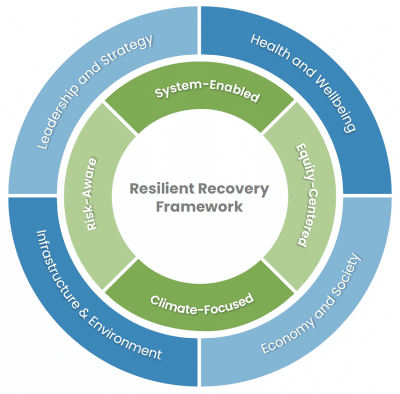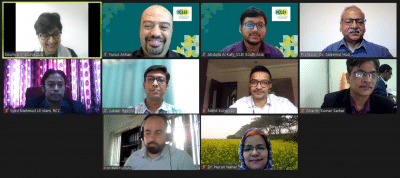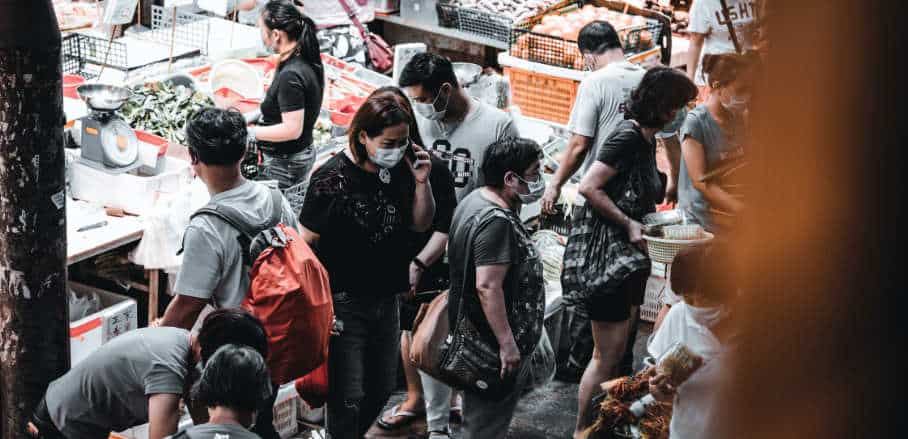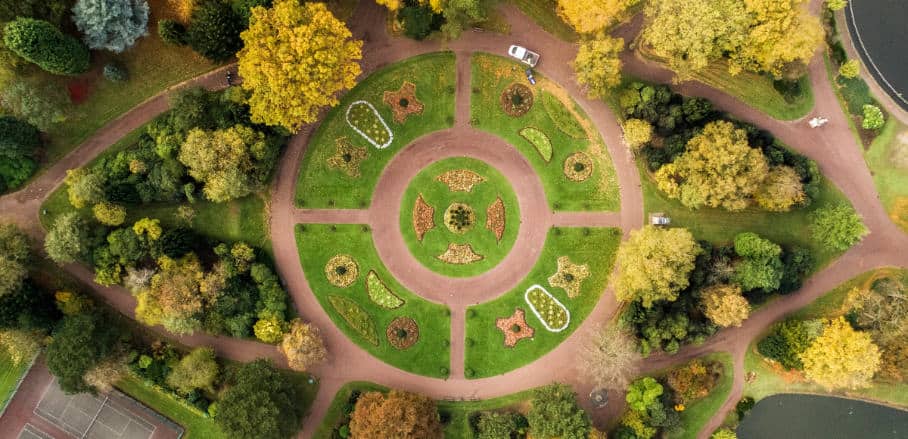Partnering for Resilient Recovery in Cities – Lessons from ReCAP21
The COVID-19 pandemic has ripped through the interconnected structures of cities, leaving urban systems vulnerable and further deepening inequities. Time for collaborative strategies and actions! Dr Nazmul Huq (ICLEI) and Dana Omran (Resilient Cities Network) with the most important lessons from ReCAP21.
The ongoing pandemic poses a fundamental threat of undoing the hard-earned progress of sustainability and resilience. Bearing this in mind, The Resilient Cities Action Package 2021 (ReCAP21) was built on the idea that climate and resilience should go hand in hand with recovery planning and action. Funded by the German Federal Ministry for Economic Cooperation and Development (BMZ), ReCAP21 convened a partnership between GIZ, ICLEI – Local Governments for Sustainability (ICLEI), the Resilient Cities Network (R-Cities), and Cities Alliance (CA).
With ReCAP21, we as a group of local government and city networks aimed to provide technical and capacity-building support to local governments in Bangladesh, Rwanda, and Mauritania that will make an impact in fundamentally shifting the traditional economic recovery planning processes towards transformations that ensure holistic resilience. Given this overarching objective, we expected local governments to be better suited to design and implement plans and design interventions for a resilient recovery.
Three Entry Points Towards Urban Transformation
Through ReCAP21, we identified three key entry points for local governments to move towards an urban transformation and a resilient recovery process. Jointly, the ReCAP21 partners produced a Resilient Recovery Guide to document and share our learnings: It encompasses entry points, the associated methodologies, tools, and best practices to help guide other local governments through their recovery processes.

Resilient Recovery Framework © Resilient Cities Network
1. The Resilience ToolBox
The first entry-point proposes the convergence of practical tools for cities, as developed by the implementing partners. They cover topics from harmonising a local government’s urban strategies to developing tailor-made risk assessments and climate-resilient interventions. Relevant tools include but are not limited to City WORKS, COM SSA SEACAP, Toolkit for a Resilient Recovery, as well as the GreenClimateCities process methodology from ICLEI. The learnings of ReCAP21 were condensed into a resilience extension of the toolbox City WORKS with six specific tools that focus on a resilient recovery. The above-mentioned approaches and tools support local governments in analysing their risks and vulnerabilities, as well as in identifying pathways for resilient development. The project convened two training sessions for local government officials in Bangladesh and Rwanda to use the tools for recovery and resilient planning in their cities.
2. Multilevel Governance and Dialogue
The second entry point is advancing implementation through multilevel governance. As a starting point, Talanoa-style Dialogues that aligned national – local policies and strategies were of particular importance. The Dialogues served to gather stakeholders from different levels of government and align strategies, such as nationally determined contributions (NDCs), in order to set and meet national goals and targets for resilient development. Two Talanoa Dialogues – one in Bangladesh and one in Rwanda – brought together stakeholders to openly discuss the challenges and strategies of operationalising multilevel governance for resilient recovery. From an operational perspective, local projects were enacted such as the urban health improvement plan in Narayanganj (Bangladesh), scaling up health centres in Muhanga (Rwanda), and enhancing resilient public spaces through public benches in Kigali (Rwanda), which are in line with the national resilience agenda.

Talanoa Style High Level Dialogue for Climate Action in Bangladesh © ICLEI
3. Accessing Finance Through TAP
The third entry point is the Transformative Action Program (TAP) which supports local governments in exploring project opportunities while accessing finance for their implementation. Through the project, municipalities in Rwanda and Bangladesh submitted the three above-mentioned projects to receive financial support for implementing green, adaptive, and resilient projects through TAP. As such, the project was also notable in setting a precedent for sharing knowledge and resources between partners to support local governments in a highly competitive constellation of city networks.
Altogether, through these entry points, we provided local governments with the practical support to identify integrated and comprehensive solutions that ranged from finance and physical interventions to cultural practices and governance arrangements. These may eventually contribute to achieving more resilient societies.
Forging Partnerships is Key for Resilient Recovery
While the pandemic offers the opportunity to fundamentally redesign our approach to urban development by incorporating pandemic recovery in tandem with a climate-resilient approach to address interconnected uncertainties, shocks, and stresses, it is evident that there is a lack of financing, strategic orientation and guidance, and an absence of political leadership. Under these circumstances, there has been increasing demand for forging partnerships to best use the skills, knowledge, and technologies available among the stakeholders. Hence, we invite other international experts, partners, and cities to use our Resilient Recovery Guide as a guide for similar contexts and situations.

© drown_in_city/Unsplash
The pandemic has given those of us who work closely with local and city governments an opportunity to re-evaluate our approaches to recovery planning and partnerships. Through ReCAP21, we demonstrated that partnerships are fundamental to planning for a resilient recovery in cities. First, we ensured that our recovery planning work had an explicit equity and inclusion focus. Second, we focused on helping cities to design projects rooted in community solutions that are locally defined. Ownership is key for a community to fully embrace this transition.
Finally, a resilient recovery must break down the thematic and hierarchical silos within governance and embolden city networks to do the same, to better co-design, and to craft integrated and holistic interventions in cities. To achieve these objectives, the implementing partners put aside their differences, joined forces, and learned together to design common frameworks and approaches for resilient recovery that can help address vulnerabilities exposed by this crisis.
ReCAP21, a Lighthouse Project
We are thrilled to witness how our partnerships and collaborations can benefit urban systems and enhance cities’ capacities to withstand risks and uncertainties. ReCAP21 might be a small project in terms of finance and duration, but its impacts have certainly proven to be far-reaching while being able to punch above its weight and ensure that local governments are empowered to undertake integrated, multidisciplinary, and collective efforts for a resilient recovery.
Yes, the pandemic is still casting a long shadow over cities, and climate change is still threatening the very existence of our planet. But it is precisely in these turbulent times that it becomes evident that collaboration and knowledge sharing is imperative to face the uncertainties of today and tomorrow.
You can download the Resilient Cities Action Package here and the Resilient Cities Action Package, Bangladesh here.
